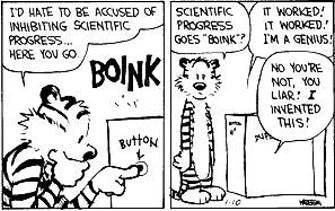On
Tuesday, September 7, 2013, at 11:00am, my esteemed co-author and I saw the
Chilean film, Violeta se fue a los
cielos. It was without a doubt one
of the most painfully beautiful movies I have seen in a long time.


The movie begins with a close-up of
an elderly human eye, sightless and unmoving.
The eye of a dead woman, this image comes up occasionally throughout the
film, making it strikingly obvious that the movie will climax with a tragic
death. As Violeta travels with her son
Angel, she pretends to be dead and it is clear that the old woman’s death will
be hers. She occasionally feigns death
throughout the movie. To her, this is a
joke. But it also brings home the point
that death is often on her mind.
In the beginning, we see Violeta as
a small child, growing up with an alcoholic father who taught music at school
and entertained drunks at the local tavern.
In an early scene, her father is humiliating himself for the laughs of
the local drunks, pretending to be a monkey, a dog, and whatever else the
saloon-goers call out. Suddenly, she
strikes his guitar against a nearby piano, stopping everything. When he looks at her, she does not flinch
from him. Rather, she stares back at
him, as though to say, Stop humiliating
yourself! Or, if you must, don’t make me
watch and listen! There is a fire in
her heart, this much is clear.
After her
father’s death, she and her own family become wandering performers. At least, the rest of them do. Musicians, jugglers, stage magicians,
all. But Violeta is becoming something
more.
In the United States, there was once
a folk singer named Woody Guthrie. There
is a story told about how he and his friend Pete Seeger traveled south to where
the coal miners were, struggling and at risk of being shot for striking. They took one look at these two musicians,
and told them to mind their own business.
“All right,” said Woody, “We will.
But I got something I think you might be interested in.” And he gave the very first performance of the
now-famous protest song and strikers’ anthem, Which Side Are You On. There
was a moment’s pause, and the place exploded in ovation.
After
Violeta and her family put on their show for Chilean miners, she gives a
stirring song of pain and woe, accompanied only by her own drum. It is a simple song, torn from the hearts of
a people torn down all their lives. It is
also a very bold act on her part, as such songs are at best frowned upon during
the time. There is a moment’s pause, as
the audience stares at her, enrapt. Then the tent explodes in ovation.


There is a word for someone like
Violeta, one which is rarely used today outside of fantasy. That word is bard. Violeta is an amazing
person, who soon after traverses the country with her son and a tape recorder
to save the songs of her people, and through them, her people’s pride and
heritage. The movie shows her collecting
songs and stories, and mastering art forms to preserve the unwritten history of
a nation under siege by its own ruling class.
And then she gambles and sometimes loses everything to share them with
the world.
Her son Angel understands. At one point in their journey, they arrive at
a village too late. The old woman they
sought had only just died; she was being put in her coffin even as they
arrived. As they stare at the empty
room, occupied now only by the old woman’s guitar, Angel turns on the
microphone and records the silence there.
My heart ached at this scene.
Humans age and die, but music and stories can live forever. When an old folksinger dies alone and unheard,
an eternity of song is struck silent.
Violeta travels to Europe and shares her music there for two years, establishing credibility as an artist and composer. Years later she returns to France, and creates hanging art that is accepted by the Louvre. She marries, divorces, marries, divorces, travels, sings, rages and storms. Finally, in her native Chile, she sets up a tent outside of town a place dedicated to the free exchange of music, art and culture. Give what you can, take what you need. Share what you know and help clean up when we’re done. This is the tent of the Reina. It is her great creation, a reflection of her genius, marred only by her own desperation.
Violeta travels to Europe and shares her music there for two years, establishing credibility as an artist and composer. Years later she returns to France, and creates hanging art that is accepted by the Louvre. She marries, divorces, marries, divorces, travels, sings, rages and storms. Finally, in her native Chile, she sets up a tent outside of town a place dedicated to the free exchange of music, art and culture. Give what you can, take what you need. Share what you know and help clean up when we’re done. This is the tent of the Reina. It is her great creation, a reflection of her genius, marred only by her own desperation.
It is when her second ex-husband
comes around with his musician friends that she shows her anxieties in earnest. By this time, she is the old woman from the
film’s beginning. She begs him to remain,
even says she will welcome whoever he was seeing then, if he will just stay
with her. They end up having sex in a
supply shed, while his friends stand around and listen on. Their daughter storms in – interrupting the
two of them in the process – grabs a mattress, drags it outside and starts
beating it with a stick just outside the tent.
When
Violeta looks at her though the shed’s slats, the girl’s glare is identical to
Violeta’s own, years ago with her father’s guitar: Stop humiliating yourself! Or if
you must, don’t make me watch and listen!
The scene was striking, and showed well both the disintegration of
Violeta’s emotional state and her own realization of how much like her father
she could become. It is soon after that
her ex and his friends leave again, while they think Violeta is still asleep.
It is a drain on one’s strength and
stamina to be alone. Though the old
bard’s vision is powerful, few if any understand it. Loneliness gnaws at her. Even at the end, when the Mayor is trying to
buy one of her paintings, her message is lost on the narrow minds around
her. She asks payment in poetry, or
trade, or music. He keeps offering her
money and pity. In the end, he shakes
his head and leaves. Violeta, alone in
an empty commune, sees this as the final failure. Because few if any people are showing up at
the bardic circles, she knows the Mayor will tear down her tent and her efforts. But even as he leaves, she shouts at him,
defiant.
Once
he is gone, Violeta sends her daughter away to gather berries and cut
eucalyptus leaves. Once the child is
gone, Violeta plays her final song, Sparrowhawk.


Throughout the movie there are small
snatches from a television interview, starring Violeta. In this interview, the program’s host
recognizes her as having changed and awakened Chile with her music even as he
asks her irrelevant, sometimes almost insulting questions. She handles them all with aplomb, always
smiling, always having a graceful answer for every graceless thing he says.
This
interview never happened.
It
should have happened. It is the moment
she has worked for all her adult life.
But it has never came about, and it never will. It is not recognition Violeta wants, she has
no need for fame. And, as a communist,
she has no taste for money. What she
longs for, what she has given her life to, is a true understanding between her
people and their traditional music and art.
What she wants is for her people not only to regain their past and their
pride, but to themselves be heard through it.
For the oppressed in Chile to throw down their tyrants and live free
again as they once had, wealthy beyond measure in the culture left to them by
their ancestors. In the interview, she
makes it clear, again and again, all she does is for her people. Without them, she is nothing.
But
the interview is only in her mind, as she sits alone in the leaky tent of the
Reina. She plays her heart’s passion for
an empty tent, dreaming of the audience that should have been in the studio as
evidence of her quest’s victory. She
sees her family, her second ex-husband, old friends, everyone who has known her,
gathered at last in understanding what she has been trying to accomplish, and taking
their rightful parts in it. She plays
and sings with all her soul, and with her soul she fills the empty tent of
Reina.
And then she picks up her revolver,
and shoots herself in the head.
Violeta del Carmen Parra Sandoval
died by her own hand in February fifth, 1967.
In the film, she dies thinking she has failed, in much the same way that,
because of the split betwixt India and Pakistan, Mohandas Gandhi thought he had
failed. Both people were visionaries,
seeking to transform the world, and thus they dedicated themselves to being the change they sought. But it is no failure to share a glorious
dream that the world does not understand.
That is the failure, not of the dreamer, but of the world.
The movie itself is magnificent, and
a fit testimony to the life of a folk hero and national treasure. Violeta is depicted as a living storm of song,
fire and rage, and no doubt would have been almost impossible to live
with. Her eye haunts the movie,
paralleled by a chicken’s eye in reference to the song Sparrowhawk, which uses a sparrowhawk killing a hen to symbolize
the cruelty of the state against the worker . . . and, perhaps, of an ignorant
world against her.

As the lights came back up and the
curtains closed, there had been one thing about the movie that had puzzled me. Having it answered was the one and only good
thing that came out of the Q&A session after the film.
As the Mistress of Ceremony walked
around with her microphone inviting questions from the audience, the very first
thing asked was, “Do you think there’s a political element in this movie?”
I
am not joking.
This
was followed by such priceless gems as, “What was with the eye? And the chicken? I didn’t get that,” and “It wasn’t in order,
and I had trouble following the non-chronological layout of the film. What was all that?” Last of all, some poor twit sitting towards
the front piped up, “As an Anglo, I felt I didn’t have a good reference for
this film.”
Yes. That’s right.
As an Anglo, he could not
identify with anyone in a foreign film.
That’s what he said. Verbatim.


Throughout
the Q&A, the audience tried to wrap their heads around the idea of suicide. The conversation went on about how, while it
might have been just a moment of weakness, everyone knows that artistic people
tend to be insane. Van Gogh was
mentioned as a typical example. Artists,
you know. Barking mad, the lot of them.
So, now I understood. As I rose from my seat and grabbed my hat, I felt
I truly realized why Violeta had killed herself. It came to me in a flash, in a vision. She died because these witless goombahs in
the audience were the exact kind of dullards she was surrounded by all her
life, passing judgment on her and her art even as she tried to help them see
that there was more to life than what they had.
Creative
people are not crazed because they are creative. Being creative myself, I find the implication
irritating. However, I can see a person
going a little nuts from being surrounded by such unimaginative dolts all day.

In conclusion, Violeta se fue los cielos is a wonderful film, one that I heartily
recommend seeing with someone who will appreciate it. The direction is without flaw, the acting is
superb, the story is compelling, and the music soars with its talons poised at
the human soul. If you have already seen
it, you know exactly what I mean. If you
have not, be aware that prose cannot transmit such an experience any more than
a poet, no matter how gifted, can describe the colour of fire to someone born
blind.
Sometime again,
--Coyote.
(Calvin and Hobbes created by Bill Watterson, say thank ye; Violeta Parra created herself, and owned herself until the very end, save for the life and soul that she dedicated to her Art and her people; Francisca Gavilán portrayed Violeta and it is her visage you see above; the movie was written by Eliseo Altunaga and based on the book written by Violeta's son, Angel; the sparrowhawk pic above is courtesy of cambridge-news.co.uk; all rights reserved by those who rightfully reserve them.)

